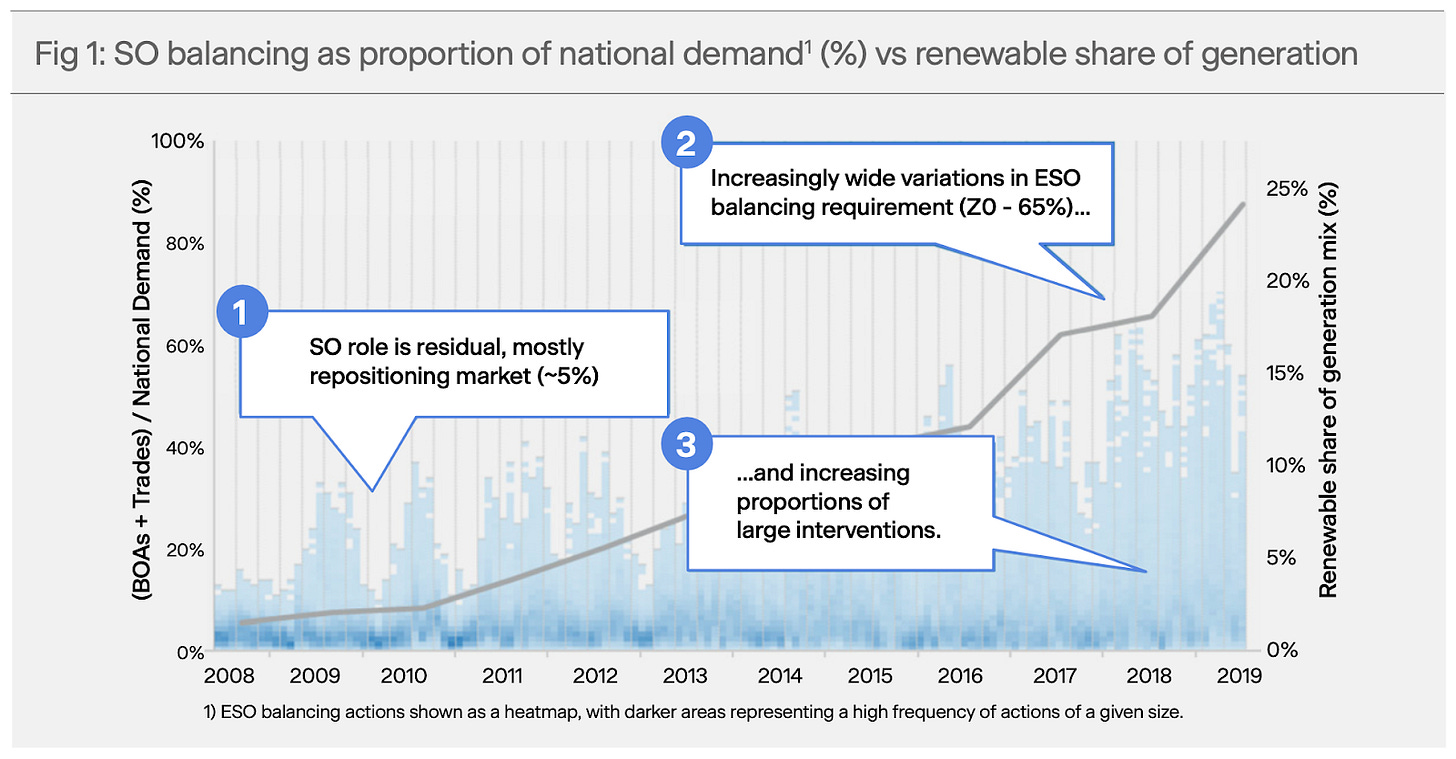Note: this post is unusually UK-focused, although it is relevant to other places. Please skip it if you are not interested. Normal service will resume shortly.
You have a much better chance of becoming and lasting as Prime Minister if you clearly understand three fundamental points. Most candidates only grasp them dimly, if at all.
The UK could deliver incomes per head some 50% higher than they are today.
Most of that shortfall is due to bad governance, accumulated over decades.
Few realize how easily this could be fixed, given the right tools and mindset.
How does that help you be Prime Minister, when few of the voters in (say) a Conservative leadership election grasp these points either?
It helps because winning over the long term in politics is not about coming up with catchy policies. It is about finding policies that create value and share the benefits widely enough to sustain a broad alliance that gives you sustained power.
Understanding these points will let you reach beyond your core supporters – whether they be (say) one nation, free marketeers, traditionalists or fiscal conservatives – and give a vision that can appeal across a party, and then across a country.
All well-trodden political ideas are unlikely to change the game, because the other candidates already know them. All you can do is tweak. By contrast, genuinely new ideas can create genuinely new value and new mainly win-win outcomes. These sorts of policies can confer dramatic advantages on the politician who finds and adopts them: it's easier to build a winning group of allies if you have more pie to share. In the UK, universal secondary education was an example of such a value-creating policy. Right to Buy was another – although that caused a number of people to lose out, and they were not made whole. I think we can do better.

There are many broken areas of the economy today where huge potential gains are on the table, which suggests there could be win-win policies to get these gains. In some places, the right ideas may have been found but are not yet widely known. In others, the work still needs to be done.
But once your team has the mindset and the skills, you can dig away at the cliff face and find the political gold at the end of this rainbow.
There are smart people, interested in politics or policy, who understand intelligent arguments and who understand how markets work. They are desperate for a candidate to offer them credible hope of something better. If you understand these points, you can appeal to them – and their friends, and those who respect them – without harming your chances with other sections of your party. And they include some of the smartest and most useful volunteers, respected Twitter voices, and opinion leaders, who can help you persuade the people you need to win over.
And, once Prime Minister, it will help you flourish, because that knowledge will let you deliver better jobs and lives, and better public services. That will help you win re-election.
These are strong claims. Space does not permit a full proof. I offer three pieces of evidence, starting with the most obvious.
Housing
Housing in the UK, like in so many other countries, is profoundly broken. Fixing that could probably raise average incomes per head by at least 10% – probably nearer to 20%. Any Prime Minister who can deliver that in a popular way is guaranteed a landslide re-election. And it can be done.
I co-wrote the Housing Theory of Everything, to try to collect all the problems with housing in one place, expanding on this.
But the hard question is not what is broken, but how to fix it, when development is so unpopular and so many voters are also homeowners. Anyone can see that we need to get to a system that delivers certainty about what development is allowed, and permits more development of the right kinds in the right places. The hard question is how to get there in a democracy. For seventy years, the UK has been trying and failing.
That is why an enormous coalition has painstakingly designed and gathered behind a proposal to give voters themselves both the power and strong incentives to address the need for more high quality homes that improve the places where they are added. The proposal is called ‘street votes’, and to its credit the Government has proposed to try it. There are many reasons, ranging from South Korea and Israel to Vancouver, to believe that it may work. Even if it fails, there are other things to try.

If people tell you that the only way to fix housing is to ram through unpopular policies, they do not understand the possibility of win-win options. If they tell you that it cannot be fixed, there are many brilliant people who disagree with them. If they tell you that it should not be fixed, giving better jobs and lives to millions, decide for yourself whether they really want you to win.
Energy
One person estimated to me that UK electricity bills could be 20% lower, simply by fixing the UK’s broken market. I’m just learning about it, so let me quote some experts:
Say you’re a wind farm in the Scottish Highlands, and you sell to a retailer with lots of customers in London. The retailer adds your generation to its energy account at the Wimbledon North GSP. But, in point of fact, there’s not enough room on the cable that carries power to London for that generation to reach you, and if that wind farm does indeed generate it could overload the local network.
At this point the ESO steps in and tells the wind farm to stop generating and instead cranks up a generator closer to the contracted demand to make the system balance. The wind farm is paid for being [told to turn] off, and the generator is paid for being [told to turn] on. The cost of meeting that demand has effectively doubled.
The ESO has highlighted that actions like this, as well as actions taken through the Balancing Mechanism, are increasing in frequency as the system decarbonises. Figure 1 should scare the living bejesus out of the BEIS Secretary of State.
Source: https://www.stonehavenglobal.com/insights/challenges-for-implementing-locational-pricing-in-the-uk (emphasis added)
Many things are broken:
No-one has the right incentives to build more long-distance cables. That means they also can’t afford to offer attractive options – like putting the cables underground – to bypass local opposition to more power lines.
Even if the right incentives were there, no-one except the monopoly operator really has the power to build the necessary long-distance lines.
Because there is essentially one national price, regardless of local capacity, consumers near plentiful power don’t realize that they are paying more to subsidize consumers in other areas who have refused to allow more generation near them.
Those consumers in other areas short of power don’t have the right incentives to allow more generation nearby or save on energy, because they are paying below the current marginal cost of their electricity.
We need to fix this. The answer clearly includes more local pricing. But the great thing about energy, unlike housing, is that most voters are only consumers. They have no enormous vested interest in keeping producer prices high. So in principle, popular solutions should be much easier.
Transport
We have an incredibly wasteful system of transport. Many people needlessly lose weeks or months of their lives stuck in traffic. Many turn down jobs they want, or live in worse housing than need be, due to traffic congestion and the lack of better options. Rural drivers pay more than they should to cover the true cost of their driving. Those who would happily take other benefits in turn for commuting at different times, or in different ways, are not offered that option. Fixing all of that could improve people’s wages and jobs, reduce the time they are stuck in congestion, and give them happier, healthier, commutes and lives.

The solutions will not be easy. They may differ, depending on which party you lead. Ben Southwood wrote a thoughtful proposal for Policy Exchange that may suit Conservative ears. It involves making drivers overall better off while setting fair pricing for road use, sharing the benefits with drivers themselves. Others have written ideas for other audiences. This may not be an issue to raise in a leadership election. But it should give you hope that we can make commuting faster, easier, greener and safer, and that we can do it in popular ways. By making much better use of roads that the Government already owns, we can give better opportunities and lives to millions.
Other sectors
I could talk about childcare, education, policing, justice, and health and social care. I could talk about crazy and damaging tax regimes. Those problems are almost as bad, if perhaps not quite so harmful, as the first three above. Do you have popular ideas to fix those too? Can you at least confidently explain that they could be improved, making the nation much better off while winning more elections?
Government itself
The civil service has many brilliant, highly motivated people. But does the system allow them to do their best for the country? I suggest that it clearly does not. In that, I follow much better minds than mine.
I do not know how to fix it, but I do have some ideas. Very few have looked at the ways in which the current civil service career structure discourages work to develop popular supply-side reform policies that will improve growth without increasing the ratio of debt to GDP, or practical ways to give the civil service the tools to work up such ideas. Vanishingly few have looked at how the Treasury might be improved to focus more resources on popular supply side reform. These seem like obvious places to start.
Getting elected
I recommend against including most of the above in your leadership platform. The Conservative Party, for example, cares about crime, children, lower energy bills and lower taxes. Other topics may be less useful for now.
But you will have an enormous advantage if you can credibly promise growth. You can do that by pointing to all the areas that currently work badly – delivering an appalling deal for working people and others. And you can convince voters that you intend to hire the best people to work on win-win, popular, effective ways to fix those broken areas. You can convince them that you believe in and intend to deliver popular growth that spreads the benefits fairly around the country.
You have great advisors. You have experts in politics; in management and delivery; in business; perhaps in economics. But how many of them have really spent time developing credible and popular ways to fix the most broken supply-side areas to deliver growth? Do the businesspeople do more than suggest things that relieve the pain points in their own business? Those may not be policies that you can get through Parliament, or may not boost growth at all. Do your political advisors understand what a non-zero-sum game is, and how much of the world consists of them? Are they any good at finding win-win options for reform that the voters will love?
Do the economists work with your political experts to come up with radical but popular and effective reforms, or do they just tell you that you must ram through unpopular policies when in office? If so, they are wrong. I am happy to debate with them in front of you.
Have you been told how the Treasury really works? Have you been shown the spreadsheets? Have you been taken through how performance management works in the Civil Service, and given credible ideas on how to fix it? Have you been told what policies have worked well in other countries, and been given workable, popular ideas to transfer them here? Are you confident that you could double the country’s rate of growth?
If not, consider whether you could improve your chances of being the greatest Prime Minister this century by asking your team to bring in more help – on fixing growth in popular, lasting ways. There is everything to play for. Good luck.





